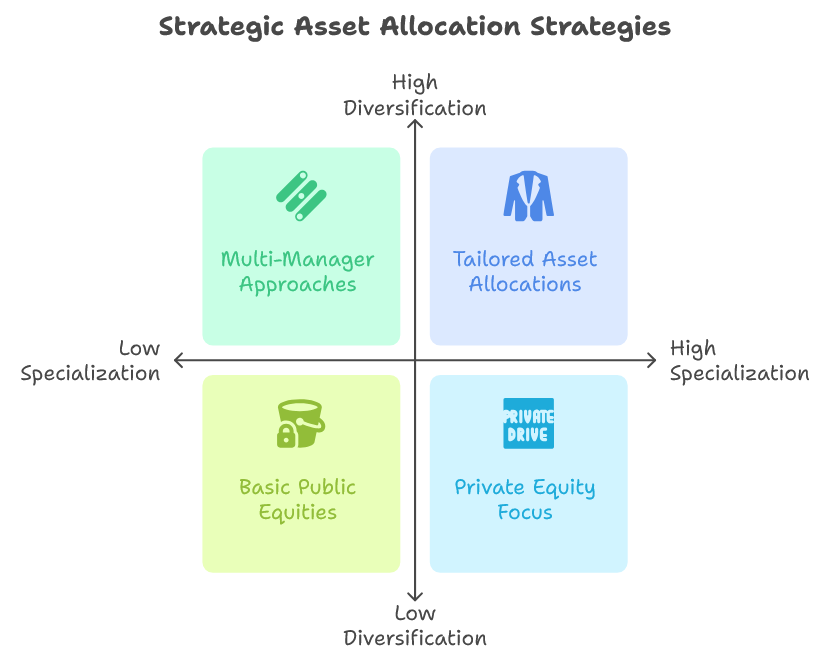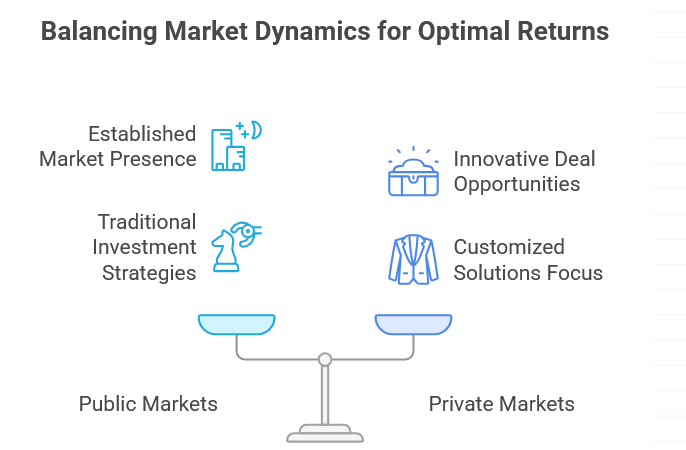
Institutional Investment Management: A Smart Choice for Wealth
Institutional investment management plays a pivotal role in helping high-net-worth individuals and families optimize their financial strategies. This professional oversight involves managing pooled capital on a large scale, enabling access to sophisticated market opportunities, experienced portfolio managers, and robust compliance frameworks. By consolidating assets, institutional approaches often deliver economies of scale that can strengthen performance and minimize risk.

Understand Institutional Investment Management
Institutional investors, such as pension funds or insurance companies, trade in significantly higher volumes compared to retail traders. They account for about 80% of the volume of trades on major exchanges (Investopedia). Because of this considerable influence, they can negotiate more favorable terms, identify exclusive investment prospects, and shape market movements in ways that smaller investors cannot.
Many high-net-worth families turn to institutional-level management for broader diversification and research capabilities. These services often come with advanced analytics and insights built around asset classes including equities, bonds, alternative investments, and more. Such a framework can align with multi-generational wealth objectives, providing stability while aiming for long-term growth.

Examine Benefits And Strategies
Institutional managers focus on strategic asset allocation, determining the right mix of public equities, fixed income, private equity, and real estate to serve an investor’s specific goals. For example, some integrate private markets to create alternative streams of return, a trend that has gained traction as venture capital grows to represent a sizable portion of modern deals (Russell Investments).
They also consider tax-efficient strategies and multi-manager approaches that provide diverse market coverage. This broader range of expertise helps mitigate idiosyncratic risk within a single portfolio. Those seeking greater specialization might explore investment mgmt solutions that tailor asset allocations to unique liquidity needs and return expectations.
Spotlight On Compliance
Wealthy families expecting rigorous oversight benefit from the strong compliance standards built into institutional investment settings. Regulatory bodies, such as the SEC, are increasingly focused on transparency and data integrity, with a packed agenda of new requirements in 2024 (Deloitte Insights). Failing to meet obligations has led to severe penalties and even business closures. More than 396,000 companies in India, for instance, were removed from official records for non-compliance over a five-year span (Acuity Knowledge Partners).
Institutional investment managers typically have robust processes in place to meet these evolving mandates. Regular audits, sophisticated software solutions, and professional oversight ensure portfolios stay within regulatory limits. As regulations shift, having experienced legal and compliance teams can guard against costly pitfalls.

Staying Ahead Of Trends
Market dynamics continually evolve, and institutional oversight can help align portfolios with emerging opportunities. Many strategies now focus on customized solutions, tax optimization, and direct indexing, providing more precise control over holdings. Experts also point to an ongoing shift away from public toward private markets, where some of the most innovative deals currently occur.
In 2025, analysts anticipate favorable conditions for U.S. small-cap stocks and continued expansion in private market offerings. Large-scale investors often prepare transition management arrangements to address volatility concerns and complex portfolio realignments (Russell Investments). Combined with vigilant compliance, these forward-looking measures can enhance overall returns while adapting to global economic changes.
Take The Next Step
Institutional investment management is an effective route for those seeking a higher level of expertise, broader diversification, and greater regulatory assurance. Families and individuals may look into investment management services that provide personalized strategies and a multi-disciplinary team of researchers, analysts, and legal professionals.
Some might wonder: “How do institutional strategies handle risk, what compliance rules apply, how are management fees structured, do institutional approaches outperform retail products, and who can qualify to invest at this level?” These questions highlight the comprehensive nature of institutional investing and the potential benefits of working with credentialed professionals.
In essence, institutional approaches combine research-driven insights, efficient asset allocation, and sturdy compliance protocols that can serve high-net-worth investors more effectively than traditional retail strategies. As financial goals evolve, maintaining strong oversight and adjusting to market changes is vital. Many find that partnering with institutional-caliber managers offers a level of customization, security, and performance that aligns with long-term wealth objectives.
Showcase your recognition by adding our award badge to your website! Simply copy the code below and embed it on your site to highlight your achievement.

Recent Posts
Investment Firms in Los Angeles to Consider
Los Angeles is home to a diverse and dynamic financial...
Investment Firms in New York to Consider
Choosing the right investment firm is crucial for achieving your...





